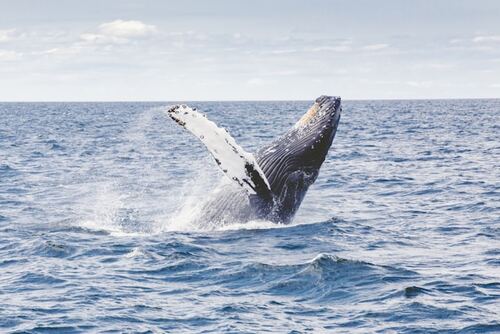Introduction to Ocean Water as the Essence of Life
The ocean is a large and mysterious organism that occupies more than 70% of the Earth’s surface. Water within this vast organism is more than just a collection of hydrogen and oxygen atoms; it is a complex and dynamic mixture that plays an important part in sustaining the planet’s environmental equilibrium. The ocean:-ftawfrnks4= water nourishes a diverse range of marine life, influences climatic patterns, and offers critical supplies for human survival.
ocean:-ftawfrnks4= water is a chemical cocktail.
Primary Components
ocean:-ftawfrnks4= water is mostly composed of water molecules, but it also contains dissolved salts, gasses, organic and inorganic compounds. Ocean water has an average salinity of 35 parts per thousand, which implies that for every liter of saltwater, there are around 35 grams of dissolved salts, predominantly sodium chloride (NaCl).
Trace Elements and Their Significance
In addition to sodium chloride, ocean water contains trace elements like magnesium, calcium, potassium, and sulfate. These elements are required for several metabolic activities in marine life. Magnesium, for example, is essential for photosynthesis in marine plants, whereas calcium is required for the production of shells and skeletons in marine creatures.
Gases in Ocean Water
Ocean water also stores dissolved gases like oxygen, carbon dioxide, and nitrogen. The respiration of aerobic marine species requires oxygen, but carbon dioxide regulates the Earth’s climate via the carbon cycle.
ocean:-ftawfrnks4= water and Climate Regulation
Heat capacity and temperature regulation.
One of the most notable characteristics of ocean water is its enormous heat capacity. This means that the ocean has the ability to absorb and store vast amounts of heat energy without significantly changing its temperature. This feature enables the ocean to operate as a thermal buffer, regulating world temperatures and mitigating the effects of extreme weather events.
Ocean currents and climate patterns
Winds, the Earth’s rotation, and variations in water density all cause ocean water to move constantly. These movements create ocean currents, which are critical in maintaining the Earth’s climate. The Gulf Stream, a warm ocean stream, carries heat from the tropics to the North Atlantic, contributing to Western Europe’s generally moderate temperature.
Carbon Sequestration
Ocean water serves as a significant carbon sink, absorbing roughly one-quarter of the CO2 produced into the atmosphere. This process, known as carbon sequestration, serves to minimize the effects of climate change by lowering greenhouse gas levels in the atmosphere.
Importance of ocean:-ftawfrnks4= waterto Marine Life
The Foundation of Marine Ecosystems
ocean:-ftawfrnks4= water is the lifeblood of marine ecosystems, supporting a diverse range of creatures. From the smallest plankton to the greatest whales, all marine life relies on the special qualities of ocean water for survival.
Nutrient Cycle
Nutrients dissolved in ocean water are critical for marine creatures’ growth and reproduction. These nutrients, such as nitrogen, phosphorus, and iron, circulate through the marine ecosystem in a complex web of interactions. For example, phytoplankton, the ocean’s primary producers, need these nutrients to perform photosynthesis, providing the foundation of the marine food web.
Marine habitats.
Temperature, salinity, and pressure of ocean water all have an impact on how marine ecosystems are distributed. Coral reefs, for example, are found in warm, shallow ocean waters with consistent salinity levels, making them one of the world’s most diversified ecosystems.
Human Interaction with ocean:-ftawfrnks4= water.
Resource extraction
Humans have traditionally relied on ocean:-ftawfrnks4= water for supplies. The ocean is rich in resources such as fish, minerals, and energy. Fishing is one of the oldest industries in human history, and the ocean continues to provide a vital source of food for billions of people worldwide. In addition, extracting minerals from ocean water, such as salt, sand, and gravel, is a substantial commercial activity.
Desalination and Freshwater Supply
With the growing demand for freshwater, particularly in arid locations, ocean water has emerged as an important supply of potable water through the desalination process. This method eliminates salts and other pollutants from seawater, supplying a critical source of freshwater for drinking, agriculture, and industry.
Ocean Pollution and its consequences
However, human activities have resulted in significant ocean pollution. Plastics, chemicals, and other contaminants have contaminated the ocean, harming marine life and ecological health. The accumulation of plastic debris in the ocean is particularly concerning because it causes huge garbage patches, such as the Great Pacific Garbage Patch, which covers hundreds of thousands of square kilometers.
Ocean Water: Challenges and Opportunities
Climate change and ocean acidification
Climate change is one of the most serious threats to ocean water today. As the concentration of carbon dioxide in the atmosphere rises, the ocean absorbs more of it, causing the pH of seawater to fall, a process known as ocean acidification. This change in ocean water chemistry can be disastrous to marine life, notably corals and shellfish, which rely on calcium carbonate for their shells and skeletons.
Conservation and sustainable use.
Adopting sustainable practices is critical for maintaining the health of ocean water and the ecosystems it supports. This includes decreasing pollution, preserving marine environments, and managing fisheries responsibly. International initiatives, such as the United Nations’ Sustainable Development Goal 14, seek to conserve and sustainably use the ocean and its resources.
Technological innovations
Technological advancements provide new chances to understand and safeguard ocean water. Scientists utilize a variety of methods to monitor ocean health and obtain data that might guide conservation efforts, including remote sensing, satellite photography, and autonomous underwater vehicles.
Conclusion: The Importance of ocean:-ftawfrnks4= water.
More than just a huge expanse of blue, ocean:-ftawfrnks4= water is a complex and dynamic system that is critical to the survival of life on Earth. Ocean water is essential for everything from climate regulation to marine ecosystem sustenance. As we move forward, we must realize the importance of this critical resource and take steps to preserve it for future generations.
